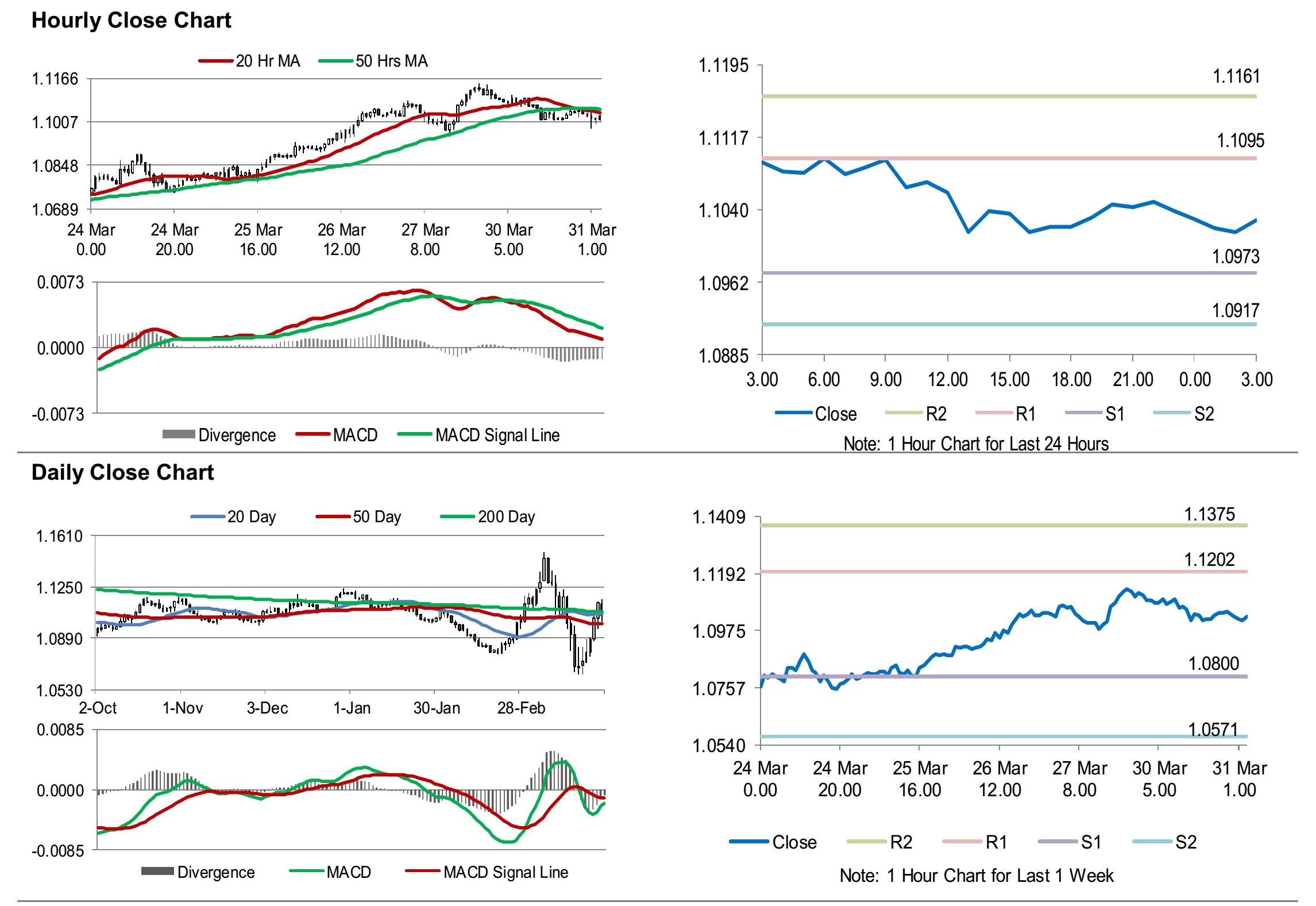For the 24 hours to 23:00 GMT, the EUR declined 0.50% against the USD and closed at 1.1038.
On the macro front, Euro-zone’s final consumer confidence fell to a 5-year low level of -11.60 in March, compared to a revised level of -6.60 in the prior month. The preliminary figures had indicated a drop to -11.60. Moreover, business climate indicator unexpectedly fell to -0.28 in March, compared to a revised level of -0.06 in the prior month. Meanwhile, economic sentiment indicator dropped to level of 94.5 in March, less than market expectations for a fall to a level of 90.6 and compared to a revised reading of 103.4 in the previous month. Separately, Germany’s consumer price index (CPI) rose 1.4% on a yearly basis in March, in line with market expectations and compared to a rise of 1.7% in the earlier month.
In the US, the Dallas Fed manufacturing business index unexpectedly plunged to a level of -70.0, defying market expectations for an advance of 6.2 and compared to a level of 1.2 in the preceding month. On the other hand, pending home sales unexpectedly rose 2.4% on a monthly basis in February, compared to a revised rise of 5.3% in January.
In the Asian session, at GMT0300, the pair is trading at 1.1028, with the EUR trading 0.09% lower against the USD from yesterday’s close.
The pair is expected to find support at 1.0973, and a fall through could take it to the next support level of 1.0917. The pair is expected to find its first resistance at 1.1095, and a rise through could take it to the next resistance level of 1.1161.
Looking forward, investors would keep a watch on Euro-zone’s CPI for March and Germany’s unemployment rate for March slated to release in a few hours. Later in the day, the US Chicago Purchasing Managers’ Index and consumer confidence, both for March, would keep investors on their toes.
The currency pair is trading below its 20 Hr and 50 Hr moving averages.

